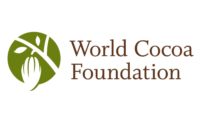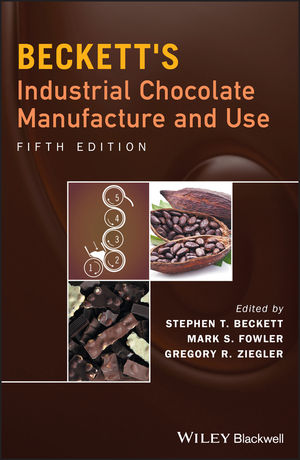World Cocoa Foundation draws up a new landscape for an equitable cocoa sector
The 2025 WCF Partnership Meeting will be held in March in São Paulo, Brazil.

courtesy of: World Cocoa Foundation
This year's World Cocoa Foundation (WCF) Partnership Meeting ended with President Chris Vincent announcing to the 500 attendees that the passionate debates over the past two days had remotivated the organization to deliver: “the result that really matters—a thriving and equitable cocoa sector.”
This annual event united cocoa farmers and experts from companies, governments, academia, civil society, and media in a single forum for discussion on shared challenges, progress, and learnings on sustainability in a conducive dialogue centered on alignment for global action.
Aligning for global action was the theme of the conference. "'Aligning for Global Action' underscores the critical interconnectedness between cocoa-producing and cocoa consuming countries with impending consuming country shaping the sustainability debate," commented Vincent.
In a week of volatility in the cocoa futures market, the WCF Partnership Meeting took place over two days (February 6–7) at the Beurs van Berlage as part of Amsterdam Cocoa Week.
This year, the WCF welcomed representatives from Côte d’Ivoire and Ghana, the world’s two largest cocoa producers, and held a series of high-level discussions that focused on achieving a living income for farmers and how to navigate legislation surrounding the forthcoming European Union Deforestation Regulation (EUDR) so that farmers can sell their beans to the EU market.
Vincent said that farmer income challenges underpin WCF’s focus areas of child labor and deforestation so “improving farmer income must remain at the forefront of everything that we do.” With a new strategy and team now in place, WCF feels confident in pushing its agenda to address these issues. “These are complex, multifaceted problems that require many different solutions to be layered on each other to deliver results. Our programs will concentrate on specific areas of systemic change where WCF’s unique position can exert the most significant influence.”
In a specially convened cocoa producer panel on day one, the stage was set by putting farmers' voices and their perspectives at the start of the conference, a first for such an event.
The Partnership Meeting also had the support of the Dutch government, with an opening address by Pascalle Grotenhuis, vice minister for international cooperation at the Ministry of Foreign Affairs. She agreed with the need for global action to transform the cocoa sector, but she said global action without coordination, strategies and partnerships would get the industry nowhere.
“Purchasing practices need to change so that farmers can earn a living income, and the value needs to be distributed fairly along the chain,” she said.
The C-suite panel also took place this edition and discussed the role of the chief sustainability officer and how it can drive purpose and align stakeholders for positive impact. The importance of collaboration and a legislative framework to create a level playing field, is deemed necessary to jointly generate impact. According to Barry Parkin, chief procurement and sustainability officer at Mars and Roel van Poppel, chief sustainability officer at ofi, sustainability is affordable, as long as it is included in the business model and there is a willingness to truly transform the system.
In the first of a trilogy of discussions on farmer income, the second took place at Chocoa, and the third will be held at the World Cocoa Conference in Belgium in April; delegates heard support for the guiding principle of a living income for cocoa farming families.
Moderated by Michel Arrion, executive director of The International Cocoa Organization (ICCO), this first session concentrated on how the development and implementation of market-based policies can make a difference and was a timely topic, with cocoa prices reaching an all-time high in early February.
If the goal was to put farmer voices and their perspectives at the forefront of discussions, then the World Cocoa Foundation achieved its aim. “Despite soaring cocoa prices, 2024 poses formidable challenges for farmers, with adverse weather conditions and disease affecting yields in West Africa,"Vincent concluded. All the stakeholders in the room, and those following the talks from the wider echelons of the chocolate industry, will be left in no doubt of the work needed to accelerate sustainability across the sector, even if all the parts become aligned.
It was also announced that the 2025 WCF Partnership Meeting will be held in March in São Paulo, Brazil.
Looking for a reprint of this article?
From high-res PDFs to custom plaques, order your copy today!









